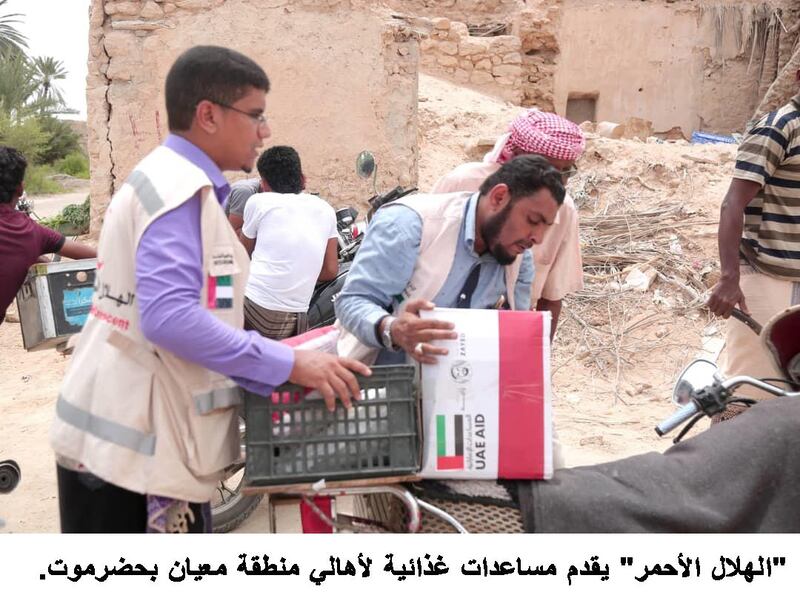The UAE's humanitarian assistance to Yemen crossed US$4 billion (Dh14.79bn) mark this month, of which $1.24bn was given this year alone.
The figures were released by the UAE government on Friday ahead of this week's United Nations General Assembly in New York, where the conflict in Yemen is expected to be a key topic.
Yemeni Foreign Minister Khaled Al Yamani and GCC Secretary General Dr Abdullatif Al Zayani launched the discussions on Saturday at a conference on the "Challenges of Political Solution, Humanitarian Action, Restoring Stability and Reconstruction".
The meeting was organised by the GCC Secretariat and Yemen government and was attended by representatives from the 19 countries sponsoring the political process, the Saudi Press Agency said, as well as by humanitarian and development organisations.
The UAE's aid to Yemen was directed towards meeting the needs of more than 16.7 million Yemenis affected by the civil war since April 2015, including 10.1 million children and 3.4 million women, state news agency Wam reported.
About $465 million of the aid allocated so far this year went towards the United Nations Yemen Humanitarian Response Plan, Wam said.
The figures show that the Government ramped up its aid allocation for the province of Hodeidah since June, when Yemeni government forces backed by the Saudi-led military coalition that includes the UAE launched an offensive to retake Hodeidah city and its port from the Houthi rebels.
From June 20 to September 20, the total UAE aid to the province on the Red Sea coast was Dh312m. This included the distribution of more than 60,000 food baskets in 45 districts that benefited about half a million residents. A number of bakeries were set up to provide free bread, including four in Khokha - one of the first districts of Hodeidah to be recaptured from the rebels.
The UAE also built 23 water stations and reservoirs to improve water supply in the province, and restored hospitals in Khokha, Durayhimi and Tuhayta districts besides setting up mobile clinics. Fishing ports were rebuilt, and 14 schools on the coast were given school supplies and solar power. The electricity supply in the port town of Mokha was also restored with generators and new power lines, Wam said.
_____________
Read more:
[ Yemen's Houthi rebels cut off food supplies for Hodeidah residents ]
[ Houthis bar civilians from Hodeidah hospitals to keep beds for fighters ]
[ Arab Coalition airstrikes resume on Hodeidah after peace talk failure ]
_____________
Sector-wise, the bulk of the UAE's aid, slightly over Dh6.3bn, was allocated to general programmes. The Government supported the public budget, especially the payment of salaries of government employees working in health, education and security to ensure they continued to provide services.
Commodity assistance amounted to Dh3.8bn, Wam said.
The power generation and supply sector received Dh1.72 billion. This included the costs of power generation and distribution, rebuilding and maintaining power stations, and providing fuel for power plants and generators to ensure supply to hospitals, schools and public buildings.
A total of Dh845mn was allocated to the health sector, helping to reduce the shortage of health services, medicines and medical supplies by rebuilding, equipping and maintaining hospitals and clinics in liberated provinces.
The UAE provided Dh599.4m to support the government and judiciary sectors, Dh575m for transport and storage, and Dh517.3m for social services.
The education sector received Dh146.9m, while the construction and civil development sector received Dh120m and Dh125m went towards providing water supply and sanitation, including access to clean drinking water.
The telecommunications sector received Dh20m, while Dh5m was allocated to improving living conditions and alleviating suffering caused by Houthi attacks, Wam said.





